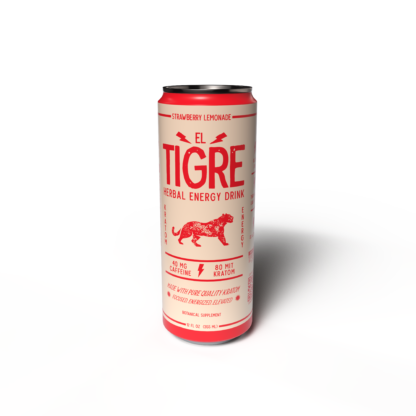Potential Benefits of Kratom in Combating Mental Fatigue
Mental fatigue, that persistent drain on concentration and energy, can significantly impact daily life and productivity. In recent years, kratom, an herb native to Southeast Asia, has gained attention for its potential as a natural remedy for fatigue. Kratom contains compounds believed to interact with the brain’s opioid receptors, offering potential benefits for managing mental exhaustion and promoting feelings of alertness and focus.
Mechanism of Action
Mental fatigue, that persistent drain on concentration and energy, can significantly impact daily life and productivity. In recent years, kratom, an herb native to Southeast Asia, has gained attention for its potential as a natural remedy for fatigue. Kratom contains compounds believed to interact with the brain’s opioid receptors, offering potential benefits for managing mental exhaustion and promoting feelings of alertness and focus.
While research on kratom is ongoing, some propose that its effects on mental fatigue stem from its ability to:
- Modulate neurotransmitters like dopamine and serotonin, which play crucial roles in regulating mood, energy levels, and cognitive function.
- Increase alertness and reduce feelings of drowsiness by stimulating the central nervous system.
- Enhance cognitive performance, potentially improving focus, memory, and overall mental clarity.
Short-Term Effects on Energy Levels and Focus
Short-term effects of kratom on energy levels and focus are often reported as increases in alertness, reduced fatigue, and improved cognitive function. Users may experience a boost in motivation and concentration, allowing them to tackle tasks more efficiently.
It is important to note that these effects are subjective and vary from person to person. The dosage of kratom consumed can also influence the intensity and duration of these effects.
Long-Term Usage and Cognitive Performance
The potential benefits of kratom for combating mental fatigue, however, extend beyond immediate energy boosts. Some suggest that long-term, responsible use may contribute to improved cognitive performance.
Proponents posit that kratom’s influence on neurotransmitters could lead to lasting improvements in mood regulation, attention span, and memory.
However, it is crucial to emphasize that research on kratom’s long-term effects is limited and more studies are needed to fully understand its potential impact on cognitive health.
Safety Considerations and Potential Risks
While kratom shows promise as a natural solution for mental fatigue, it is essential to approach its use with caution. Kratom can interact with certain medications and may have adverse effects, particularly when consumed in high doses or by individuals with pre-existing medical conditions. Potential risks associated with kratom include nausea, vomiting, constipation, and dizziness. Long-term use of kratom has also been linked to potential health concerns such as liver damage and addiction. It is crucial to consult a healthcare professional before using kratom, especially if you have any underlying health issues or are taking other medications.
Dosage and Tolerance
Safety considerations and potential risks associated with kratom use should be carefully considered. Kratom can interact with certain medications, such as opioids and antidepressants, potentially leading to adverse effects. High doses of kratom can cause nausea, vomiting, constipation, dizziness, and increased heart rate. Long-term kratom use has been linked to potential health concerns, including liver damage and addiction. Individuals with pre-existing medical conditions, such as liver or kidney disease, should consult a healthcare professional before using kratom.
Dosage recommendations for kratom vary depending on individual factors, tolerance, and desired effects. Starting with a low dose and gradually increasing it as needed is generally advised. It’s important to be aware that kratom can have varying potencies depending on the source and preparation method. Tolerance to kratom can develop over time, requiring higher doses to achieve the same effects.
Side Effects and Interactions
Kratom, while showing promise as a natural remedy for mental fatigue, carries potential risks and side effects that require careful consideration. It’s crucial to understand these risks before using kratom to ensure safety and well-being.
One significant risk is the possibility of adverse interactions with certain medications. Kratom can interact with opioids, antidepressants, and other drugs, potentially leading to dangerous consequences. Individuals taking medication should consult a healthcare professional before using kratom to assess potential risks.
Another concern is the range of side effects kratom can produce. These can include nausea, vomiting, constipation, dizziness, and increased heart rate, particularly at high doses. Prolonged use of kratom has also been linked to potential health issues like liver damage and addiction, highlighting the importance of responsible and moderate consumption.
Given these risks, it is essential to approach kratom with caution. Starting with a low dose and gradually increasing it as needed under the guidance of a healthcare professional is recommended. Individuals with pre-existing medical conditions, particularly liver or kidney disease, should avoid kratom altogether due to the increased risk of complications.
Regulation and Quality Control
While kratom shows promise for mitigating mental fatigue, it’s crucial to acknowledge the potential risks and ensure responsible use. Kratom can interact with medications like opioids and antidepressants, leading to adverse effects. High doses may cause nausea, vomiting, constipation, dizziness, and elevated heart rate. Long-term use has been linked to liver damage and addiction, emphasizing the need for moderation and professional guidance.
Regulations surrounding kratom vary widely. In some countries, it’s legal and readily available, while others have banned or restricted its sale and possession. This lack of consistent regulation raises concerns about product quality control and potential contamination.
Without standardized production practices and rigorous testing, consumers may encounter kratom products with varying potencies and unknown ingredients. This variability can make it difficult to predict dosage effects and increases the risk of unintended consequences.
Exploring Kratom-Infused Energy Drinks: A Practical Approach
Mental fatigue, a pervasive issue affecting concentration and energy levels, can significantly impact daily life. Kratom, a herb native to Southeast Asia, has emerged as a potential natural remedy for combating this persistent drain. This article explores how kratom-infused energy drinks may offer benefits in reducing mental fatigue, delving into the potential mechanisms behind its effects.
Types of Kratom Energy Drinks Available
Kratom-infused energy drinks are a relatively new product on the market, gaining popularity as people seek natural alternatives to combat mental fatigue. These drinks typically combine kratom powder with other ingredients commonly found in energy drinks, such as caffeine, guarana, and B vitamins.
The most common type of kratom energy drink available is a ready-to-drink beverage, often sold in cans or bottles. These drinks provide pre-measured doses of kratom and other energizing ingredients, making them convenient for on-the-go consumption. Another option is powdered kratom that can be mixed with water or other beverages to create a customized energy drink.
Some brands offer specialized kratom energy drinks formulated for specific purposes. These may target enhanced focus, mood elevation, or increased physical endurance.
Choosing a Reputable Brand
Choosing a reputable brand of kratom-infused energy drink is crucial to ensure both safety and efficacy. Look for brands that prioritize transparency in their sourcing, production processes, and ingredient lists. Reputable manufacturers will clearly label the type and amount of kratom used in each product. They should also conduct third-party testing to verify the quality and purity of their products, ensuring they are free from contaminants or harmful substances.
Reading customer reviews and seeking recommendations from trusted sources can help identify brands known for their reliable products and ethical practices. Avoid brands with misleading marketing claims or vague information about their ingredients and sourcing. Prioritize brands that prioritize transparency and consumer safety.
Recommended Consumption Guidelines
Kratom-infused energy drinks are a relatively new product on the market, gaining popularity as people seek natural alternatives to combat mental fatigue. These drinks typically combine kratom powder with other ingredients commonly found in energy drinks, such as caffeine, guarana, and B vitamins.
The most common type of kratom energy drink available is a ready-to-drink beverage, often sold in cans or bottles. These drinks provide pre-measured doses of kratom and other energizing ingredients, making them convenient for on-the-go consumption. Another option is powdered kratom that can be mixed with water or other beverages to create a customized energy drink.
Some brands offer specialized kratom energy drinks formulated for specific purposes. These may target enhanced focus, mood elevation, or increased physical endurance.
When considering kratom-infused energy drinks, it’s essential to approach them with caution and understand the potential risks and benefits.
Choosing a reputable brand of kratom-infused energy drink is crucial to ensure both safety and efficacy. Look for brands that prioritize transparency in their sourcing, production processes, and ingredient lists. Reputable manufacturers will clearly label the type and amount of kratom used in each product. They should also conduct third-party testing to verify the quality and purity of their products, ensuring they are free from contaminants or harmful substances.
Reading customer reviews and seeking recommendations from trusted sources can help identify brands known for their reliable products and ethical practices. Avoid brands with misleading marketing claims or vague information about their ingredients and sourcing. Prioritize brands that prioritize transparency and consumer safety.
Alternatives to Kratom for Mental Fatigue Relief
Mental fatigue, a common struggle impacting concentration and energy levels, can significantly hinder daily life. While traditional solutions exist, individuals are increasingly seeking natural alternatives to combat this pervasive drain. Kratom, a herb native to Southeast Asia, has gained attention for its potential as a natural remedy for mental fatigue.
Lifestyle Modifications

Alternatives to kratom for managing mental fatigue include lifestyle modifications, herbal supplements, and certain medications.
Lifestyle changes can significantly impact energy levels and cognitive function. Prioritizing adequate sleep, engaging in regular physical activity, and maintaining a balanced diet are crucial for combating mental fatigue.
Stress management techniques such as mindfulness, meditation, or yoga can also be beneficial. Reducing caffeine and alcohol consumption can further contribute to improved energy levels and focus.
Several herbal supplements have been traditionally used for their purported benefits in addressing fatigue. Examples include:
- Ginseng: Known for its potential to boost energy levels and cognitive function.
- Ashwagandha: An adaptogen that may help manage stress and improve mental clarity.
- Rhodiola: A herb believed to enhance stamina and resilience to fatigue.
- L-Theanine: An amino acid found in green tea, which may promote relaxation and focus.
It’s essential to consult a healthcare professional before using any herbal supplements, as they can interact with medications or have potential side effects.
Herbal Supplements and Natural Remedies
Mental fatigue, that persistent drain on concentration and energy, can significantly impact daily life. In recent years, kratom, an herb native to Southeast Asia, has gained attention for its potential as a natural remedy for fatigue. Kratom contains compounds believed to interact with the brain’s opioid receptors, offering potential benefits for managing mental exhaustion and promoting feelings of alertness and focus.
While research on kratom is ongoing, some propose that its effects on mental fatigue stem from its ability to:
- Modulate neurotransmitters like dopamine and serotonin, which play crucial roles in regulating mood, energy levels, and cognitive function.
- Increase alertness and reduce feelings of drowsiness by stimulating the central nervous system.
- Enhance cognitive performance, potentially improving focus, memory, and overall mental clarity.

While kratom shows promise as a natural solution for mental fatigue, it is essential to approach its use with caution. Kratom can interact with certain medications and may have adverse effects, particularly when consumed in high doses or by individuals with pre-existing medical conditions. Potential risks associated with kratom include nausea, vomiting, constipation, and dizziness. Long-term use of kratom has also been linked to potential health concerns such as liver damage and addiction.
It is crucial to consult a healthcare professional before using kratom, especially if you have any underlying health issues or are taking other medications.
If you’re considering alternatives to kratom for managing mental fatigue, here are some options worth exploring:
- Lifestyle Modifications: Prioritizing adequate sleep, engaging in regular physical activity, and maintaining a balanced diet can significantly impact energy levels and cognitive function.
- Herbal Supplements: Several herbs have been traditionally used for their purported benefits in addressing fatigue. Examples include ginseng, ashwagandha, rhodiola, and L-theanine. Always consult with a healthcare professional before using any herbal supplements.
- Medication:** Certain medications, such as stimulants or antidepressants, may be prescribed by a doctor to help manage fatigue associated with specific conditions.
Clean Kratom caffeine blend to try
Pretty Little Answers
Tasha
- Why Breadcrumbing Is Emotionally Manipulative In Relationships - November 18, 2025
- What Is The Alternative To Under Eye Fillers? - November 15, 2025
- What Age Is Safe For THC? - November 12, 2025
